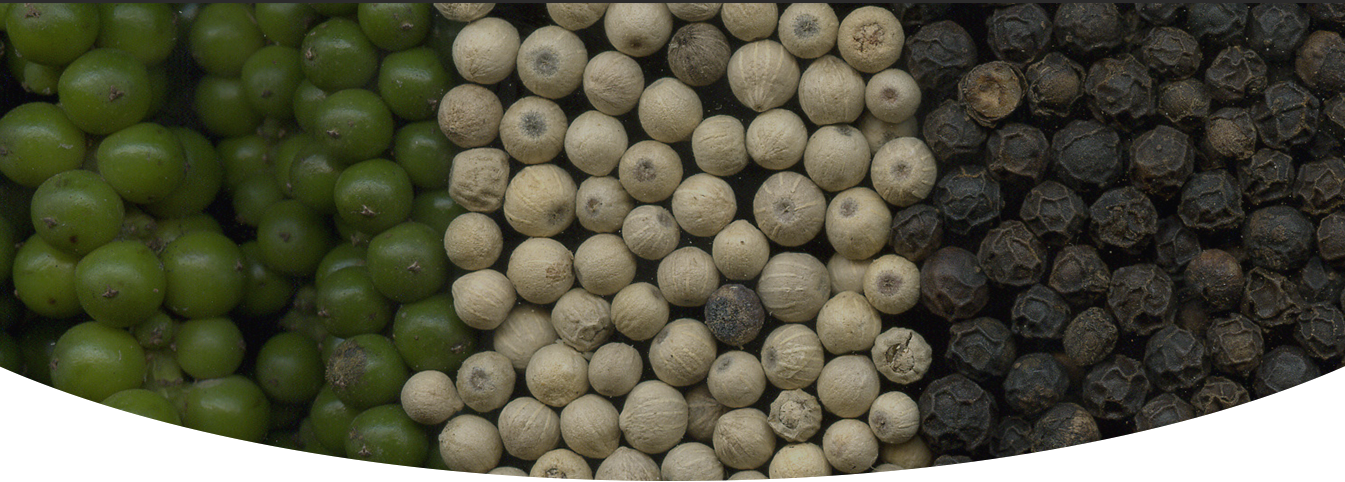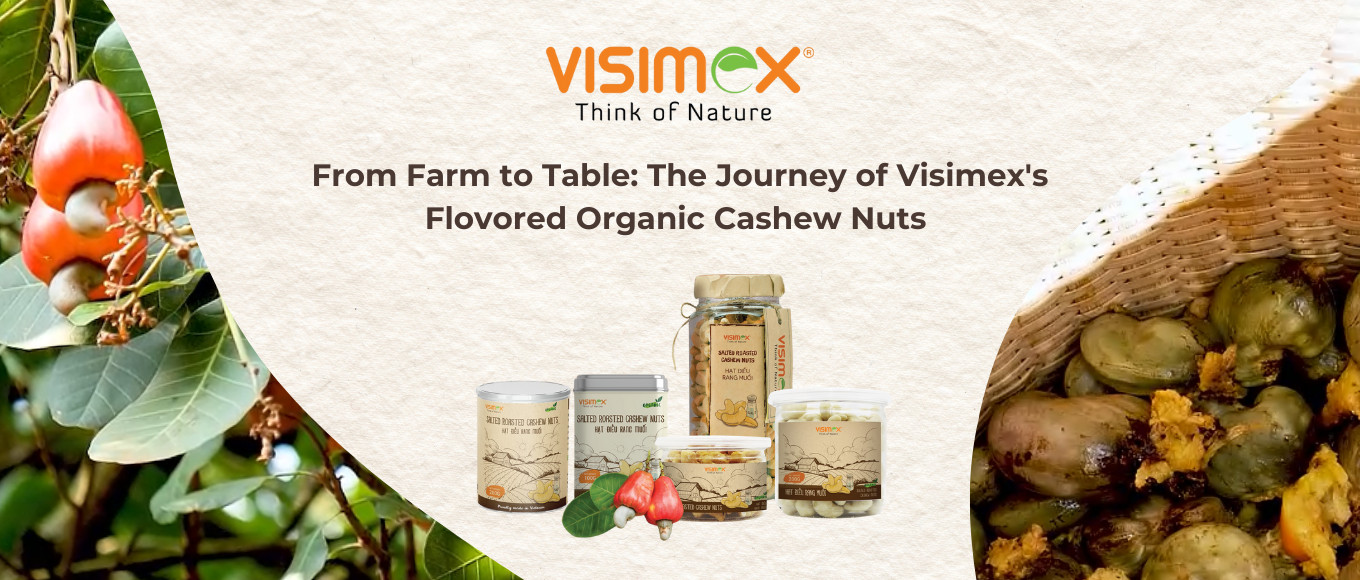Organic cashew nut farming is gaining popularity worldwide due to its positive environmental impact. Unlike conventional farming methods that use synthetic fertilizers and pesticides, organic farming relies on natural approaches to protect crops and soil. In this article, we will explore the impact of organic cashew nut farming on the environment and how it can contribute to sustainable agriculture.
Conservation of Soil and Water

Organic cashew nut farming practices prioritize the preservation of soil and water resources. Instead of using synthetic fertilizers and chemicals that can harm the soil and water, organic farmers use natural fertilizers and crop rotation to enrich and conserve moisture. Organic farming methods also cover crops that reduce soil erosion and improve soil quality. In the long run, these practices help to maintain healthy soil and water resources, which are critical for sustainable agriculture.
Reduction of Carbon Footprint
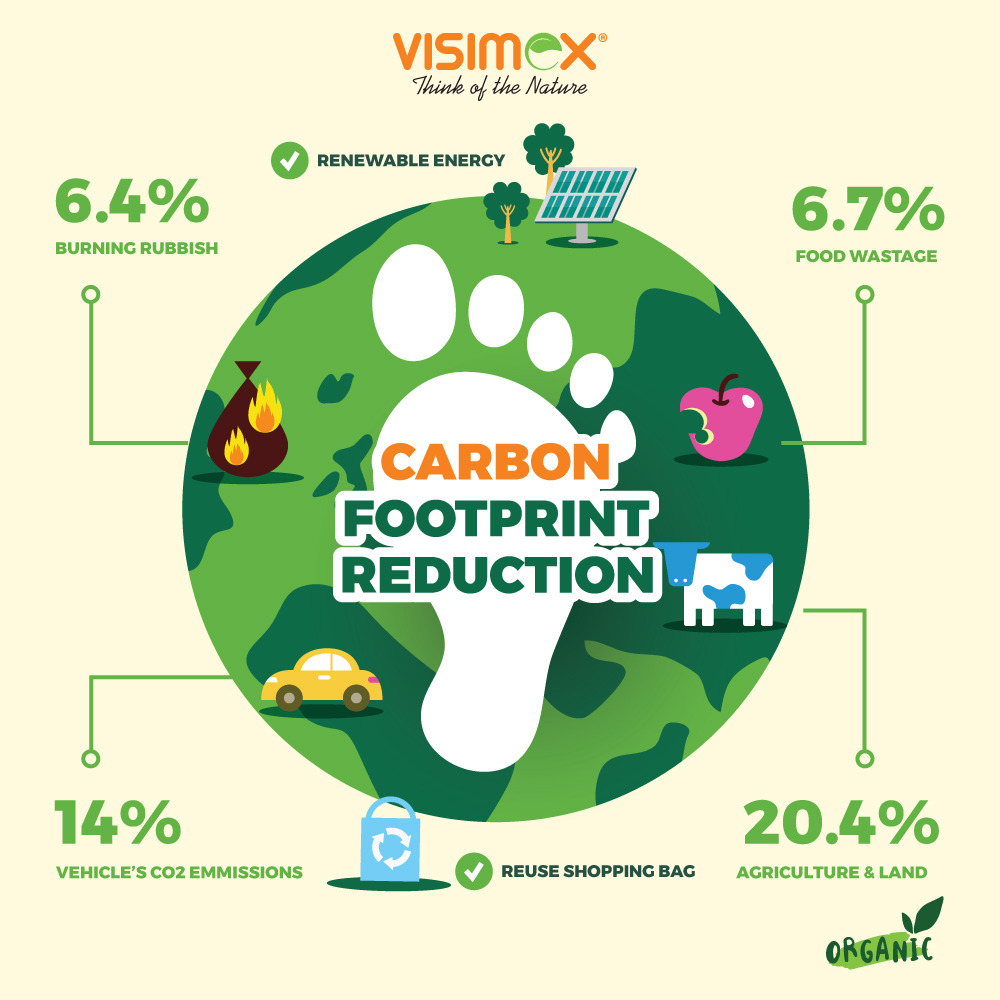
Organic cashew nut farming has a lower carbon footprint than conventional farming methods. Organic farmers use fewer fossil fuels, as they do not rely on synthetic fertilizers and pesticides that require extensive energy use. Organic farming also involves using cover crops and crop rotation, which help reduce carbon emissions by increasing carbon sequestration in the soil. In addition, organic farming practices also reduce the need for long-distance transportation, as organic produce is typically sold locally, reducing the carbon footprint.
Protection of Biodiversity
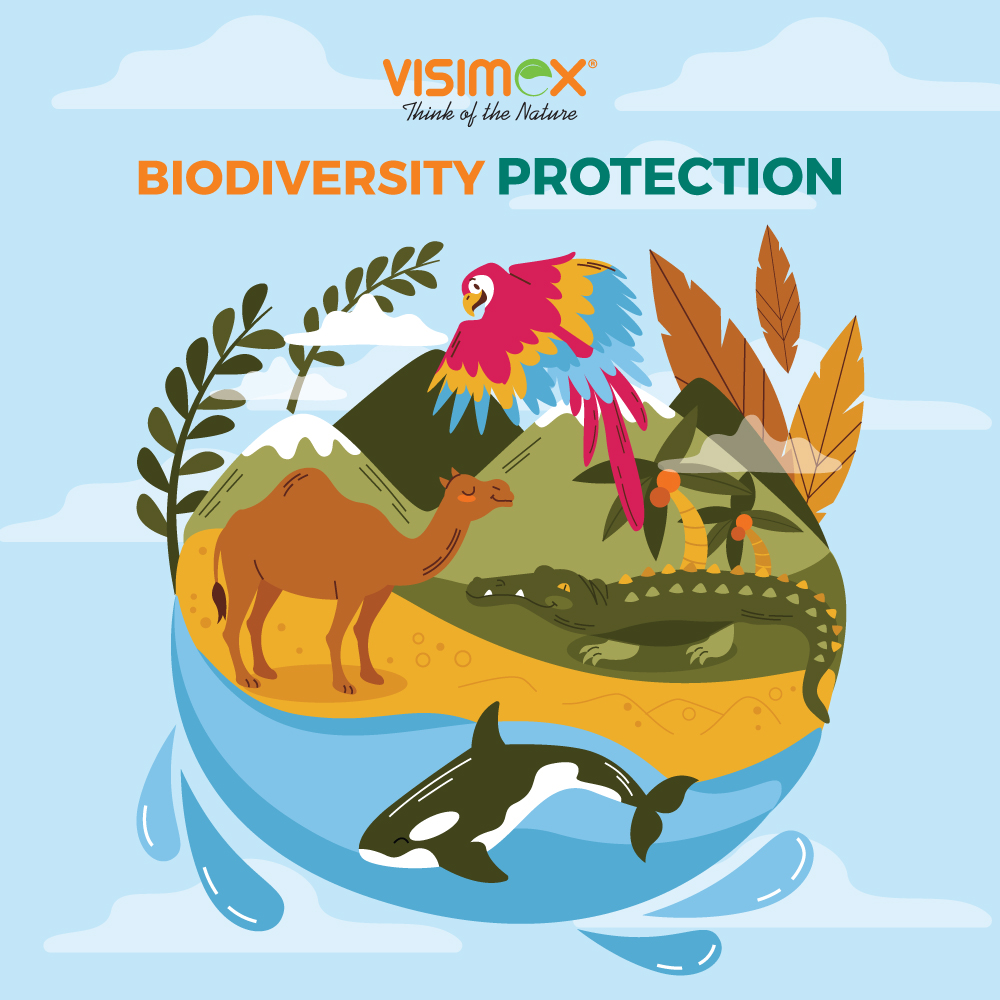
Organic cashew nut farming practices are designed to protect biodiversity. Organic farmers do not use synthetic chemicals that can harm wildlife and insects. Instead, they rely on natural crop rotation and intercropping methods to control pests and diseases. Organic farming practices also promote the growth of beneficial insects, such as bees, essential for pollination. By protecting biodiversity, organic cashew nut farming can help to maintain a healthy ecosystem and contribute to sustainable agriculture.
Visimex, a pioneer in organic agriculture in Vietnam, has been practising organic cashew nut farming for over 20 years. The company’s commitment to eco-friendly practices has resulted in sustainable farming practices that positively impact the environment. Visimex uses natural fertilizers and crop rotation to conserve soil and water resources, reducing the carbon footprint of farming. The company also promotes biodiversity through biological pest control methods and the growth of beneficial insects. By choosing organic cashew nuts from Visimex, you support sustainable agriculture practices that protect the environment and promote healthy living.
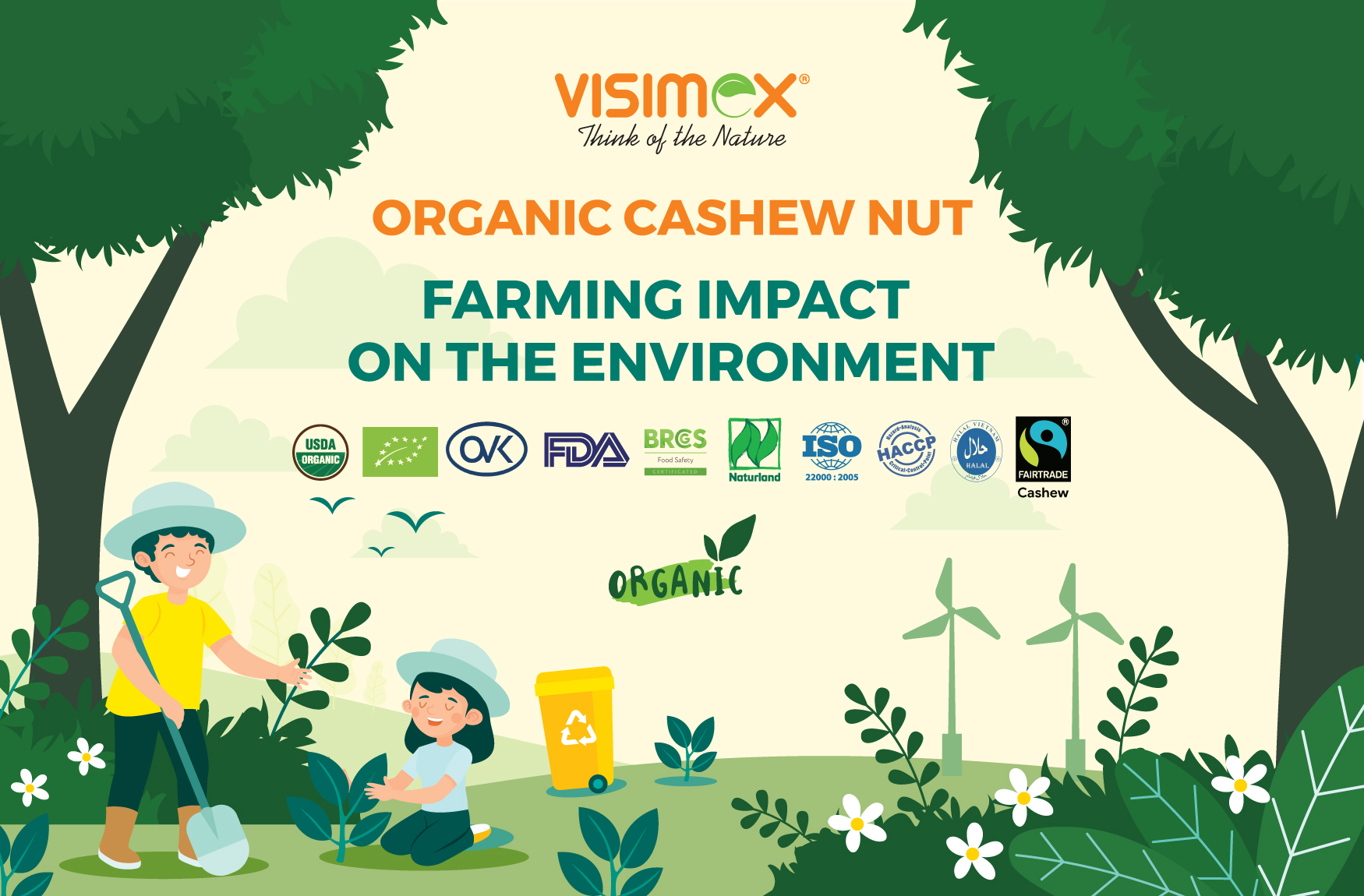
In conclusion, organic cashew nut farming positively impacts the environment, contributing to sustainable agriculture. Using eco-friendly practices such as natural fertilizers, crop rotation, and pest control, organic farming methods help conserve soil and water resources, reduce carbon emissions, and protect biodiversity. Visimex, with its 20 years of experience in organic agriculture, is a pioneer in sustainable farming practices, promoting a healthy environment and healthy living through its organic cashew nut farming.
Discover our products by clicking here.
Follow our LinkedIn




